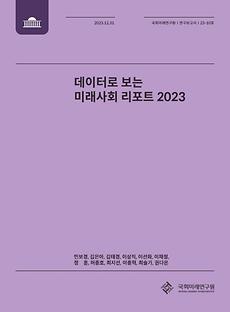
To address complex and uncertain social challenges entangled in various stakeholder interests within a volatile policy environment, rational decision-making based on scientific and objective data is required. The National Assembly, as the representative body of the people and the ultimate decision-making institution for national policies, is expanding its role. As such, there is a need to provide data-driven empirical analysis materials from a medium to long-term perspective to support the activities of the National Assembly in examining national policies. This study aims to construct a comprehensive and specific indicator system that can be easily understood and perceived by the public to diagnose and empirically analyze social changes. This will enhance the resilience and preparedness of future society. Specifically, it seeks to assess whether our society is adequately prepared and responsive to demographic mega-trends such as low birth rates, population aging, and changes in population structure, and then to subsequently derive policy implications.
Given the world's lowest birth rates, an aging society, and demographic changes, demographic factors have a long-term and wide-ranging impact on society, necessitating strategies for preparation and response. While demographic changes in South Korea may have negative implications for maintaining the current economic and social system, there are also opportunities that can bring about new societal changes. A smart-growth society envisions a prosperous future that develops the economy and society through technological and institutional innovations. In the era of an aging population, digital accessibility and capabilities for the elderly are gradually improving through technology and institutional innovation, but the level of digital information literacy among the elderly remains low, confirming the need for policy support. Looking at indicators for a sustainable and secure society reveals that the utilization rates of childcare facilities and kindergartens are on the rise, and greenhouse gas emissions and the proportion of renewable energy generation have improved compared to the previous year. Examining indicators related to a cooperative society that respects diversity shows that the gender inequality index has decreased internationally.
Examination of future society response indicators confirms that the establishment of sub-indicators for youth, the elderly, women, and others is necessary for formulating strategies to address population-related issues such as low birth rates and population aging. Regular management plans for the indicator system for future society, as derived from this study, need to be established. To achieve this, it is necessary to develop a roadmap for setting future vision, deriving core strategies, and identifying key monitoring indicators through a specific process and at specific intervals.